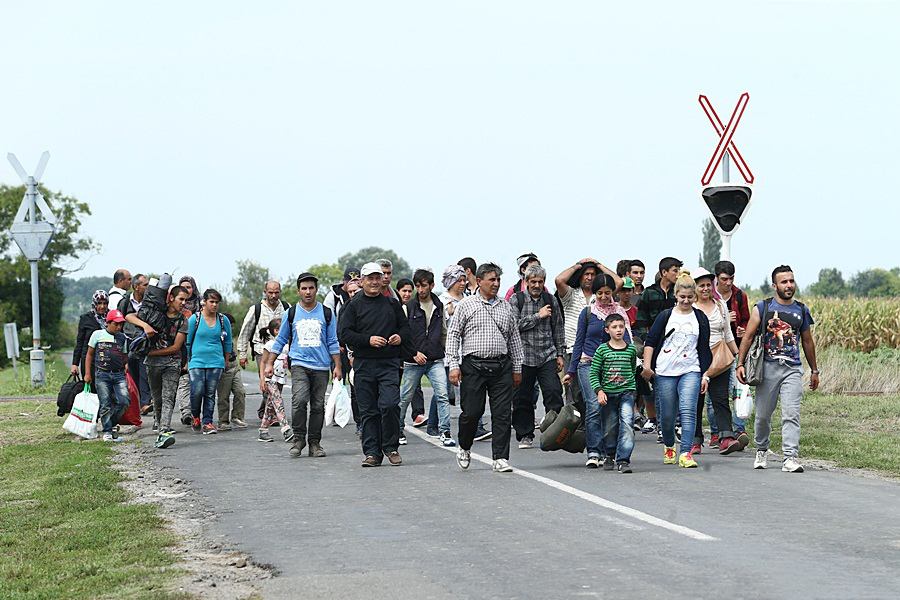For nearly five years, Syria has been submerged in a brutal, chaotic civil war. The country has become a playground for regional powers battling for influence by proxy; a fertile ground for extremist factions, such as ISIS, to expand their influence; and the site of a sweeping humanitarian disaster. The UN estimates that since the conflict began in March 2011, 250,000 people have lost their lives, 7.6 million Syrians have been internally displaced, and a further four million have fled the country.
These four million refugees are at the heart of a swelling tide of migrants seeking stability outside the Middle East. Europe has been the primary destination for the majority of the asylum-seekers, much to the displeasure of many European countries. Immigration has become a source of venomous debate across the European political spectrum, with some nations promising to welcome newcomers and others insisting it isn’t their problem.
Credit: Gemes Sandor/SzomSzed.
While Canada and the United States have been largely spared from the complications of this mass human migration, they have not avoided controversy altogether. In particular, Canadian authorities came under fire when it was revealed that they had rejected the asylum application of Abdullah Kurdi, father of 3-year old Alan, whose lifeless body was photographed on the shores of Turkey, causing international outrage.
Since the November election of Prime Minister Justin Trudeau, the tone of the discussion around welcoming refugees to Canada has changed significantly. Part of Trudeau’s election platform was a promise to welcome tens of thousands of Syrian refugees to Canada as soon as possible. And while the government has not been able to live up to the promised numbers, they have done all they can to maintain a climate of openness and acceptance. Indeed, when the first planeload of Syrian refugees to Canada landed in Toronto, Trudeau was at the airport, ready to welcome the new Canadians home.
Positive messaging alone is insufficient, though. A recent CBC article covered a group of publicly-sponsored refugees staying at a budget hotel in Toronto. According to volunteers, the group feels like they’re “trapped in prison,” with some saying they’d prefer to be back at refugee camps in Jordan and Lebanon.
“We were told that when we arrived to the hotel that we would only be staying for three to four days maximum,” Zaneb Adri Abu-Rukti told the CBC, through a translator. “However, things have been changed and we’ve been here for 10 to 11 days, and we’ve been told it could be even longer. The problem is that we have kids and we would rather be outside in a settled house than sitting at a hotel.”
“The settlement agencies are overwhelmed,” added volunteer Virginia Johnson. “There’s a huge opportunity for individuals to step up and help.”
While privately-sponsored refugees seem to be transitioning to life in Canada more smoothly, the legal process for becoming a sponsor is reportedly nightmarish. In Windsor, Ontario, a team of lawyers and paralegals has assembled to help those eager to become sponsors. The lawyers will receive specific training in the sponsorship application process and will provide counsel for Canadians hoping to become refugee sponsors.
The Syrian refugee crisis has become a nearly global phenomenon, and without an end to the civil war in site, it seems unlikely to disappear in the near future. As such, Canadian politicians, immigration lawyers, and public citizens must come together to decide how much Canada can do, and how best to do it.






